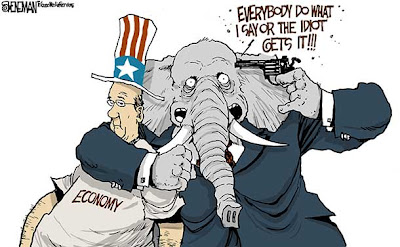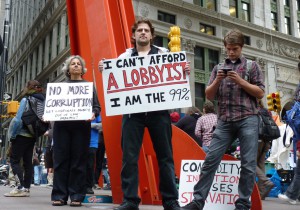Simon Johnson:
Karl Rove’s Crossroads GPS group has launched
the first attack ad against Elizabeth Warren, presumably because she is now running hard for the Senate in Massachusetts. This ad is not a big surprise, but the line that Mr. Rove takes could well backfire.
The ad states, “we need jobs, not radical theories and protests,” so we can break the argument down into three separate parts.
First, who destroyed more than 8 million jobs in the United States – and plunged us into the deepest and longest lasting recession since the 1930s? Surely this was not Ms. Warren, who was just a law school professor, in the run-up to 2008.
Mr. Rove is opening the blame game and this is going to go badly for his presumed supporters – the largest banks on Wall Street that took excessive risks, paid their top people well, and then blew themselves up at great cost to the American taxpayer. By all means, let us have a conversation about jobs and the history of job losses in the United States; “too big to fail” banks do not look good in this context.
Second, what exactly is the radical theory here? Ms. Warren’s point has been that we regulate the safety of toasters but not financial products. Basic consumer protection is, of course, still resisted strongly by the less reputable parts of the financial sector. But honestly, what well-run and honest firm fears sensible product standards, which is exactly what the Consumer Financial Protection Bureau is working on establishing?



































